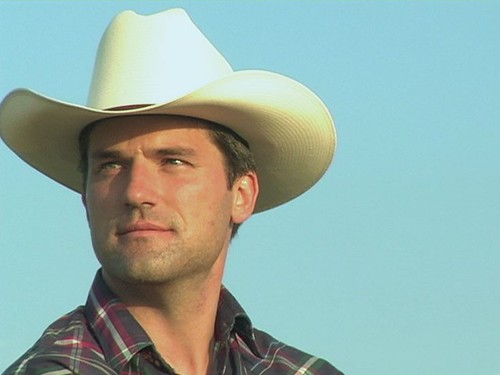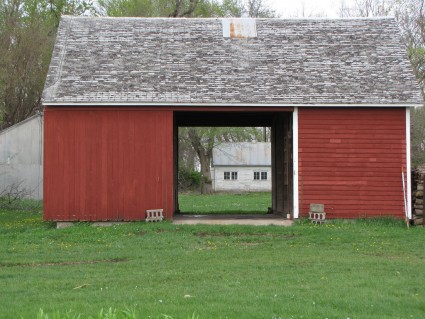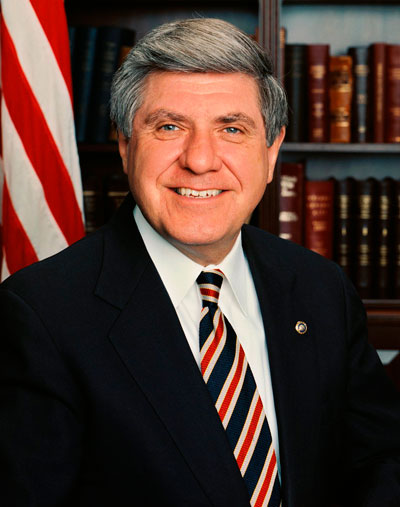Nebraska
-
Feeling sheepish: An exercise in small-town networking
Sheep ready to be unloaded into their new pen from the borrowed livestock rack.(Steph Larsen photos)My first experience working directly with cows on a daily basis was not a particularly good one. It was 7 years ago on an organic dairy farm in England, and while most of the 99 Ayrshires were docile, the well-placed […]
-
Farmers don’t get vacation
The old granary on our Nebraska property (Steph Larsen)Farmers know that their chosen profession is not an occupation, but a lifestyle. If you believe the Hollywood version, farming is all about waking up at sunrise, frolicking with cute lambs and chicks, and driving a tractor through a field of waving golden grain. And when the […]
-
Ben Nelson’s logically incoherent stance on cap-and-trade
Cross-posted from The Wonk Room. There seems to be something about climate policy that encourages senators to take positions that are logically impossible. In the latest instance, Sen. Ben Nelson (D-Neb.) has now managed to simultaneously oppose and support a carbon command-and-control regime. Nelson is one of three Democrats to co-sponsor Sen. Lisa Murkowski’s (R-Ark.) […]
-
Ben Nelson (D-Neb.) [UPDATED]
Ben Nelson Sen. Ben Nelson doesn’t believe a cap-and-trade climate bill can pass Congress this session, he said on Oct. 30 — and he doesn’t intend to do anything to help it. “I haven’t been able to sell that argument to my farmers, and I don’t think they’re going to buy it from anybody else,” […]
-
Why I ditched D.C. and moved to rural Nebraska
“You’re moving where?! Why?!” Steph Larsen on the road in North and South Dakota Photo: ruralaffairs. This response was by far the most common among acquaintances when I told them excitedly that I was leaving my Washington, D.C. job directing the policy program at Community Food Security Coalition to be an organizer in rural Nebraska […]
-
U.S. Senate candidate Scott Kleeb and the clean energy roundup
Fresh from an overwhelming primary victory in Nebraska's U.S. Senate race, 32-year-old rancher, Yale Ph.D., and college history teacher Scott Kleeb spoke with me on the phone about his "brand of change" for a clean energy economy and the environment.

Kleeb shocked the political establishment in 2006 by getting 45 percent of the vote in Nebraska's 3rd Congressional District, one of the most Republican districts in the country. Then, as now, he ran as a clear progressive on most economic and environmental issues (while staying coy on some contentious social issues).
One of Kleeb's core concerns has been meeting the challenge of the climate crisis through a clean energy revolution on the prairie and through aggressive use of domestic and international forest and farm carbon credits. Through it all, Kleeb has been aided by a huge renewable resource of his own: megawatt good looks that won him "The Hot Rancher" award from Young Voter PAC.
Now Kleeb is hoping his unique combination of deep Nebraska roots, Ivy League cred, and movie star charm will help him overcome his opponent: President Bush's former agriculture secretary (and former Nebraska governor) Mike Johanns, who's based his career on support for Big Ag, free trade, and fossil fuels.
Q. Where do you see Nebraska's economic future, and what role do you think clean energy will play in it?
A. We've got to transform the way we produce and consume energy. There's a failure of leadership we've seen at all levels of government. We've got to figure out how to do more with less. That's true of our elected officials and true of ourselves as individuals. This is a generations-long process. We are on the cusp of it right now. Biofuels and wind energy and solar energy and algae-based energy is just the tip of the iceberg.
Nebraska's economy is going to be transformed by that revolution. Farmers will find new ways of feeding or, once we get to cellulosic ethanol, fueling the world.
Q. Recent studies have suggested that devoting American land to growing biofuels instead of food is causing massive deforestation in carbon-rich tropical forests. How can switchgrass and cellulosic ethanol be viable if it's just causing food to be grown in these highly sensitive ecosystems thousands of miles away?
-
A trio of Obama wins
As expected, Obama won Nebraska, Washington, and Louisiana. The victories were widely predicted, but the sheer size of them, the overwhelming Obama stompery, was something of a surprise.
-
Poop is not funny
OK, maybe a little. Hot off the, er, presses: a company in Australia is seeking donations of kangaroo dung to make recycled paper. Inspired by African and Asian operations that make sheets from elephant excrement, Joanna Gair hopes to make "Roo Poo Paper" a household name. The "pooey" product has proven useful as a conservation fundraiser in some places and is, of course, a hit with the kids. "It's taken my breath away just how popular this [idea] is," Gair says. Which is not a funny quote at all.
Folks in Milford, Nebraska, might want to consider the same plan, since they just spent four months battling a massive, burning pile of manure at a feedlot. The 100-foot-long heap, estimated to weigh 2,000 tons, began smoldering due to organic action at its center (here's to the power of composting!). After the state Department of Environmental Quality cited clean-air violations, concerned parties spent several weeks pulling the pile apart, and finally quelled the fire. What a relief that is.



